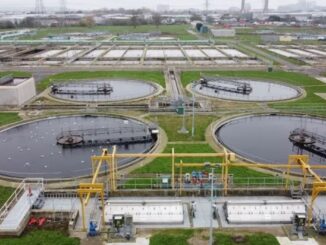
The UK Government has, for only the third time, used its new national security powers to intervene in respect of a transaction. This new intervention is in respect of the acquisition of asset development rights to an energy project. It also marks the first case where the Government has exercised its powers to impose conditions on a transaction, rather than simply blocking it outright.
On 14 September 2022, the UK Business Secretary, Jacob Rees-Mogg, issued a Final Order in respect of a proposed asset acquisition by Stonehill Energy Storage Limited (Stonehill Energy). This is his first intervention under recently introduced National Security and Investment Act (NSIA) since his appointment as Secretary of State for Business, Energy and Industrial Strategy on 6 September 2022.
For background information on the NSIA, please see our earlier publication: National Security and Investment Act: Time to act now.
What is a Final Order?
If the UK Government identifies any national security concerns in relation to a proposed transaction reviewed under the NSIA, it has the power to issue a Final Order. The terms of that Final Order could include blocking the transaction (see Blocked: UK Government uses new powers to block deal raising national) or, as in this case, imposing conditions that must be satisfied before the transaction can close.
The Acquisition
The transaction in this case relates to a development initiative known as the “Stonehill Project”. Currently owned by Stonehill Battery Storage Limited, this project involves the development of various energy mechanisms and technologies that are aimed at improving the UK Power Grid’s ability to utilise renewable energy.
The Secretary of State’s intervention relates to Stonehill Energy’s intention to purchase 100% of the asset development rights in the Stonehill Project (the Acquisition). Through the Acquisition, Stonehill Energy would acquire the ability to ‘direct or control’ further development of the Stonehill Project.
In making the Final Order, the Secretary of State concluded that:
- acquiring asset development rights in this case constitutes a ‘trigger event’ under the NSIA; and
- the Acquisition may cause a risk to the security of an important UK electricity asset and the services provided to the National Grid.
Although detailed reasons behind any security risk identified by the UK Government are not revealed, it is notable for this deal that Companies House lists the State-Owned Assets Supervision And Administration Commission (a Chinese Government Department) as an active shareholder of Stonehill Energy, with ownership and voting rights of 75% or more.
The Conditions
Instead of blocking the Acquisition, the Final Order imposes two conditions, both of which relate specifically to the acquirer, Stonehill Energy, in order to mitigate the perceived security risk. The two conditions that have been imposed as being “necessary and proportionate to mitigate the risk to national security” created by the Acquisition are:
- a requirement on Stonehill Energy to obtain the UK Government’s approval before appointing a power offtake operator; and
- a restriction on the sharing of information from the power offtake operator to Stonehill Energy.
Both conditions are ongoing behavioural requirements that will remain in place until varied or revoked by the Secretary of State. The fact that the UK Government has imposed conditions, rather than simply block the Acquisition, is encouraging. It demonstrates that a pragmatic approach will be taken to situations where the Government has identified perceived risks, and is willing to engage with parties on ways to mitigate those perceived risks.
Next steps
This latest development underlines our advice to clients to factor in the NSIA regime at the outset of their due diligence when considering how it will impact their acquisitions and investments. Parties should consider from the outset whether there could be any potential concerns and, if necessary, be prepared to engage with the UK Government to mitigate those concerns.



